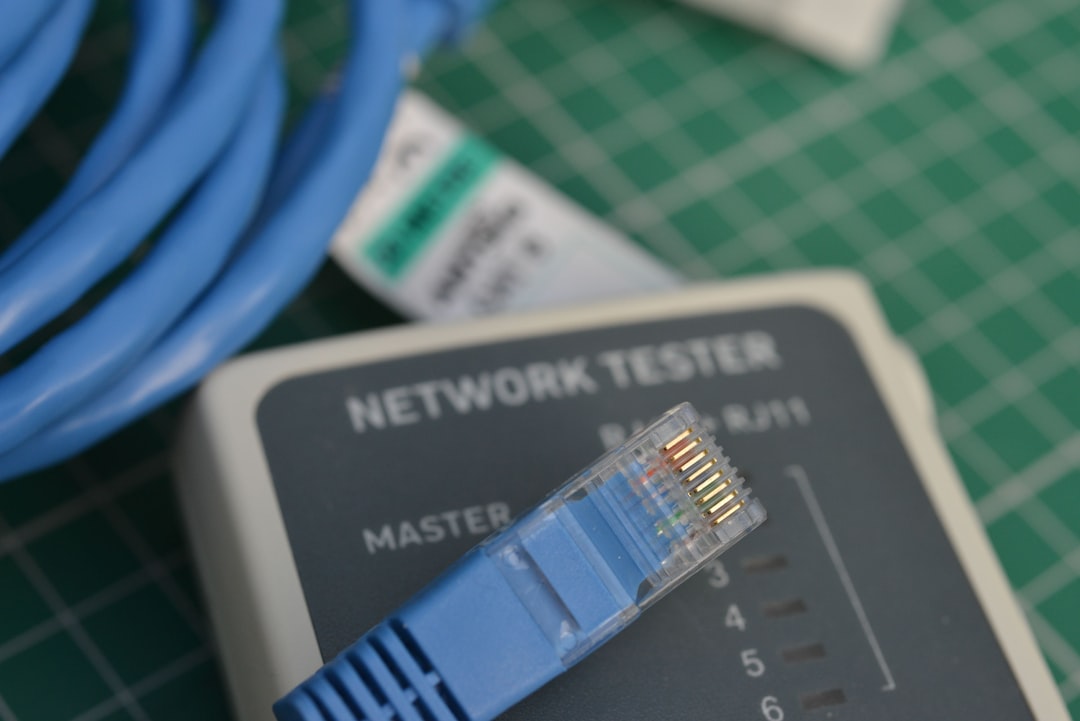Introduction
Transitioning from an employee role to owning a franchise is a significant career shift that requires careful planning and strategic execution. As an aspiring franchise owner, navigating this change effectively involves understanding your new responsibilities and acquiring the necessary business acumen. Career coaching can be invaluable in this process, providing the guidance and support needed to manage the complexities of franchise ownership. By combining your existing skills with targeted strategies, you can achieve success and enjoy the benefits of being your own boss.
Understanding the Career Transition from Employee to Franchise Owner
 Image courtesy: Unsplash
Image courtesy: Unsplash
Transitioning from being an employee to becoming a franchise owner is a notable career shift. This transformation requires not only a change in mindset but also a thoughtful assessment of your motivations, readiness, and alignment with franchising opportunities. Here, we explore key aspects to ease your journey into franchise ownership.
Identifying the Motivation for Change
The desire to transition from an employee to a franchise owner often stems from personal or professional aspirations. Understanding your motivation is critical and can stem from several factors:
– Desire for Independence: Many are driven by the autonomy and freedom that owning a business can provide.
– Financial Goals: The potential for increased income and long-term financial security is a significant motivator.
– Personal Fulfillment: Owning a franchise might align better with one’s passions and lifestyle preferences.
Reflecting on these motivations will help clarify your decision and ensure that you are pursuing franchise ownership for the right reasons.
Assessing Personal and Professional Readiness
Once you’ve identified your motivation, assess both your personal and professional readiness to become a franchise owner. This includes evaluating your skills, experiences, and willingness to take on new challenges. Consider the following:
– Skill Set: Analyze your current skills and identify areas for development that may be necessary for running a business.
– Risk Tolerance: Assess your comfort level with financial risk and responsibility.
– Time Commitment: Consider the time and effort required to manage a franchise effectively.
– Support System: Ensure you have the support of family and friends as this transition can be demanding.
This evaluation helps in understanding whether you’re prepared to commit to the responsibilities and challenges of franchise ownership.
Exploring Franchise Opportunities that Align with Your Values
Selecting the right franchise involves aligning opportunities with your values, interests, and long-term goals. Start by researching various franchises to find a business model that resonates with you. Here’s how you can explore effectively:
– Industry Fit: Determine which industries excite you and where you can utilize your strengths.
– Franchise Values: Investigate franchises with values and cultures that match your own.
– Growth Potential: Analyze the potential for growth and sustainability within each option.
By aligning your choice with your personal values, you’re more likely to find satisfaction and success in your franchise ownership journey.
Strategic Planning for Successful Franchise Ownership
Strategic planning is essential for transitioning seamlessly into franchise ownership. It involves meticulous research, planning, and ensuring you have a solid financial strategy in place.
Conducting Thorough Market Research
Market research is a cornerstone of successful franchise ownership. Understanding the market dynamics will enable you to make informed decisions and tailor your business strategy effectively. Consider these steps:
– Competitor Analysis: Study the competition to understand their strengths and weaknesses.
– Customer Demographics: Identify and understand your target customer base.
– Market Trends: Stay updated on industry trends that may impact your franchise.
This research will help you position your franchise successfully within the market and identify opportunities for growth.
Developing a Business Plan
A well-structured business plan is crucial when transitioning to franchise ownership. Your business plan should outline your vision, strategies, and goals. Focus on the following elements:
– Executive Summary: Provide a snapshot of your business and its objectives.
– Operational Plan: Describe the day-to-day operations and management structure.
– Marketing Strategy: Explain how you plan to attract and retain customers.
– Financial Projections: Include forecasts for sales, expenses, and profitability.
Developing a detailed business plan will guide your operations and serve as a valuable tool for securing financing.
Securing Financing and Financial Planning
Financing is a significant aspect of owning a franchise. Securing sufficient funds and planning your finances will be central to your business’s stability and growth. Here’s what you need to consider:
– Initial Investment: Determine the total start-up cost, including franchise fees and working capital.
– Funding Options: Explore various funding sources, such as personal savings, loans, or investors.
– Cash Flow Management: Plan to maintain a healthy cash flow to cover operating expenses.
By securing the necessary financing and managing your finances prudently, you ensure that your franchise operates smoothly and can weather unforeseen challenges.
Transitioning to a franchise owner involves embracing change with strategic thinking and preparation. By understanding your motivations, assessing readiness, and planning effectively, you can successfully navigate this career transition and achieve your business goals.
Leveraging Career Coaching for a Smoother Transition
Transitioning from employee to franchise owner is a significant career shift that requires careful planning and strategic actions. Career coaching can be a valuable asset in this journey, providing personalized guidance and expertise. Here’s how you can leverage career coaching to your advantage.
Setting Realistic Goals and Milestones
One of the first steps in this transition is to establish clear and realistic goals. Career coaches can assist in breaking down your long-term ambitions into manageable milestones.
– Define Objectives: Begin by identifying what you want to achieve as a franchise owner. Is it financial independence, work-life balance, or expanding a franchise?
– Create Milestones: With your goals in place, work with your coach to create specific milestones. These benchmarks will help track progress and keep motivation high.
– Adaptability: Stay flexible. Your initial goals may evolve as you learn more about franchise ownership.
Having a strategic plan in place ensures you have a clear direction and actionable steps to follow, providing a sense of control and purpose.
Identifying and Overcoming Potential Challenges
Every career transition comes with hurdles, and moving to franchise ownership is no exception. Career coaches can play a pivotal role in helping identify and address potential challenges early on.
– Financial Management: Understand the financial aspects of owning a franchise. Coaches can guide you in budgeting, securing financing, and managing cash flow.
– Time Management: Shifting from an employee’s routine to managing a franchise requires different time management skills. A coach can help you build strategies for productivity and efficiency.
– Stress and Pressure: Franchise ownership can bring added stress. Learn techniques to manage pressure and maintain mental well-being.
Proactively understanding these challenges enables you to develop preventative strategies and gain confidence in your ability to succeed.
Building Essential Skills for Franchise Management
Transitioning to franchise ownership involves honing new skills that may differ from those required in an employee role. Career coaches can aid in identifying gaps and providing resources for skill development.
– Leadership Skills: As a franchise owner, you will lead a team. Coaches can provide leadership training and mentorship opportunities.
– Customer Service Excellence: Ensuring customer satisfaction is crucial. Develop skills in managing customer relations and service quality.
– Operational Expertise: Gain knowledge in managing daily operations, inventory, and logistics.
By focusing on these skills, you’re better prepared to handle the multifaceted responsibilities of franchise management effectively.
Building a Support Network and Utilizing Resources
 Image courtesy: Unsplash
Image courtesy: Unsplash
Having a strong support network is vital for a successful transition from employee to franchise owner. Connecting with the right individuals and resources can provide insights, support, and encouragement.
Networking with Experienced Franchise Owners
Connecting with those who have already made the transition can provide invaluable insights and advice.
– Join Franchise Groups: Participate in franchise owner groups or forums. These communities are often willing to share their experiences and offer guidance.
– Mentorship Opportunities: Seek out mentorship from experienced franchise owners. Their firsthand knowledge of the industry can provide clarity and direction.
– Event Participation: Attend industry events, workshops, and seminars to meet potential mentors and expand your network.
Building these relationships can accelerate your learning curve and provide vital support as you maneuver through new challenges.
Utilizing Franchise Support Systems and Training
Most franchise systems offer resources designed to support new owners. It’s crucial to take full advantage of these offerings.
– Initial Training: Participate in any training provided by the franchisor. This typically covers operational procedures, marketing, and product knowledge.
– Ongoing Support: Engage with ongoing support services. These can include regular training updates, marketing aid, and operational advice.
– Franchise Advisory Councils: Some franchises have advisory councils to represent franchisee interests. Utilize this platform to voice concerns and gain insights.
These resources are intended to aid your success and should be seen as integral parts of your ownership plan.
Engaging with Professional Business Organizations
Beyond direct franchise-related networks, joining professional business organizations can broaden your perspective and support.
– Chambers of Commerce: Local chambers provide networking opportunities, resources, and business advocacy.
– Business Development Groups: Engage with organizations focused on business growth and development for additional learning and networking.
– Industry-Specific Associations: Join associations relevant to your franchise sector. They can offer industry-specific insights and opportunities for networking.
Engaging with these organizations enhances your knowledge and connects you with broader industry trends and opportunities. Together, these strategic connections and resources create a comprehensive support system designed to facilitate a smoother transition into franchise ownership.
Conclusion
Transitioning from an employee to a franchise owner can be a rewarding yet challenging journey. With the right strategies and support, you can successfully navigate this change. Remember to:
– Seek Guidance: Consider career coaching to gain insight and clarity.
– Conduct Thorough Research: Understand the franchise model and market trends.
– Invest in Training: Equip yourself with the necessary skills for franchise management.
By embracing these steps, you can unlock new opportunities in your professional journey and achieve business success.


